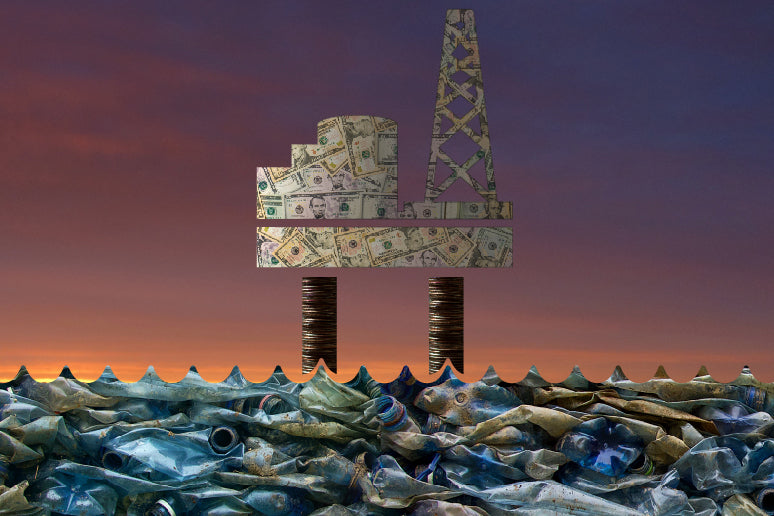
Coronavirus Pandemic Drives Plastic Production and Waste
By Romero Halloway

Plastics recycling is largely a fantasy perpetuated by the fossil fuels industry to provide a salve to the environmental consciences of consumers in the United States and abroad. Plastics are non-biodegradable, take up enormous space in landfills, and often end up as litter. They sully our landscapes, our oceans, and our beaches.
The industry has often held out recycling as a way for environmentally minded people to reconcile their use of plastic, but as a new series of articles makes clear, this is largely a pipe dream.
The latest development, according to a recent article by Reuters, is related to the coronavirus pandemic, which has exerted downward pressure on oil and gas prices due to a huge fall in demand.
Since plastics are petroleum-based, the fall in oil and gas prices means plastics are cheaper to produce. In a normal economy, new plastic is already less expensive than recycled plastic. The effect of the coronavirus has widened this gap.
Recycled plastic is at least 83% more expensive than new-bottle grade plastic, according to a recent analysis by the market analyst firm Independent Commodity Intelligence Services.
This motivates most plastics producers to manufacture with new plastic, creating more non-biodegradable products while sending plastic recyclers out of business. As new plastic becomes easier to manufacture, some recycling firms in the United States have shrunk by as much as 60%.
This bodes ill for the world’s environment.
Since 1950, the plastics industry has produced about 6.3 billion tons of plastic waste, only a paltry 9% of which is ever recycled. Most of it (79%) ends up in landfills or as litter strewn about the landscape with the remainder (12%) being incinerated.
It’s not just landfills and unsightliness either, as plastic production has profound climate implications. The manufacture of four plastic bottles is equivalent to driving one mile in a gas-powered car, according to the World Economic Forum.
The oil and gas industry looks poised to ramp up its plastics production in light of the steep declines from its energy portfolio as a result of the pandemic and the long-term shift to renewable energy.
“Over the next few decades, population and income growth are expected to create more demand for plastics, which help support safety, convenience and improved living standards,” ExxonMobil spokeswoman Sarah Nordin told Reuters.
One of the ways to cut into that demand is to provide an alternative to plastics. That’s why we here at VITRI are using our background in material science and product design to build a product that can help people break up with plastics.
Our team is committed to making durable and sophisticated products that rival the convenience of plastics without the environmental burden. We believe technology and design innovations can revolutionize how Americans and the world consume products in a more environmentally responsible manner. Please stay tuned to our website, blog, and upcoming Kickstarter page as we unveil a product fully capable of providing the experience and sustainability that will consign the concept of disposable plastics to the garbage heap of history.
Editor's Note: This post has been updated to reflect our rebranding to VITRI.
